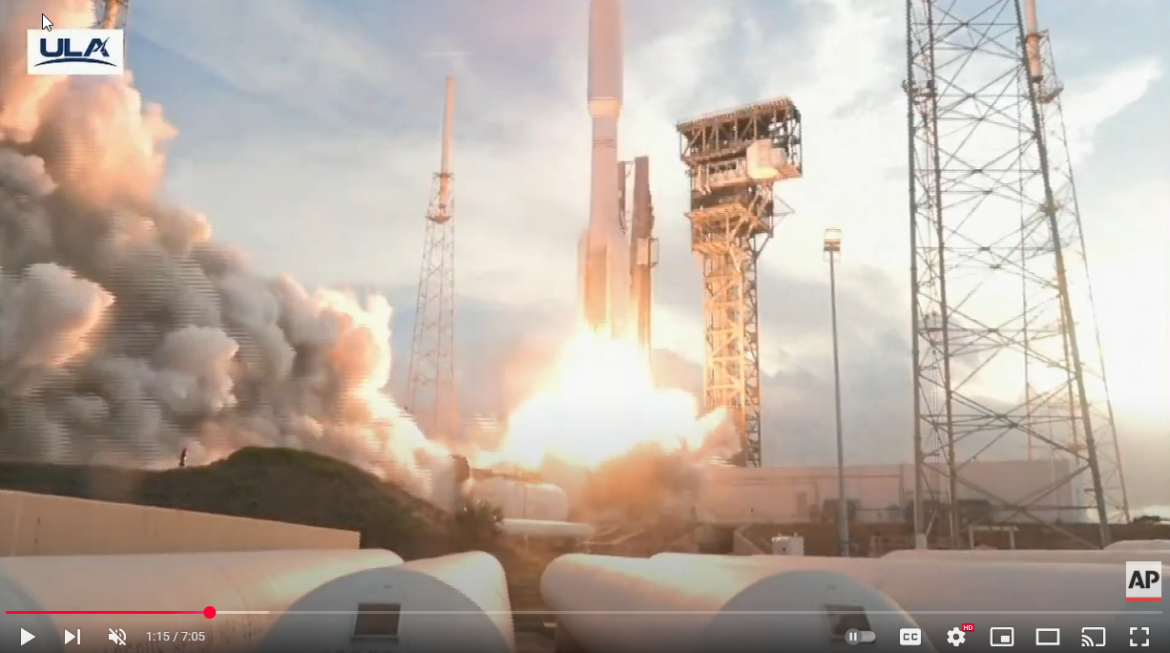Amazon’s ambitious Project Kuiper officially takes flight as the first batch of its internet satellites successfully launches into orbit after a weather delay. A United Launch Alliance (ULA) rocket carrying 27 Kuiper satellites lifts off from Cape Canaveral Space Force Station in Florida, marking a critical milestone in Amazon’s plan to create a massive satellite-based broadband network that will eventually compete head-to-head with SpaceX’s Starlink.
The launch, originally scheduled for earlier in the week, is delayed due to unfavorable weather conditions but proceeds smoothly on Monday. Roughly 280 miles above Earth’s surface, the satellites separate from the rocket and begin their initial deployment phase. Amazon engineers are now monitoring the satellites to confirm that they can maneuver independently, maintain stable orbits, and successfully communicate with ground stations—a critical step before the Kuiper system can begin limited internet service tests.
Project Kuiper, first announced in 2019, represents one of Amazon’s largest infrastructure investments outside of its traditional e-commerce and cloud services businesses. The company has committed up to $10 billion to build the satellite constellation, ground systems, and related technology. Once complete, the Kuiper network is expected to consist of over 3,200 satellites designed to deliver high-speed, low-latency internet to underserved and remote areas around the world.
The stakes are enormous. Amazon’s Kuiper network is poised to challenge SpaceX’s Starlink, which already has more than 5,000 operational satellites in orbit and a rapidly growing global customer base. However, Amazon’s entry comes with advantages: the company’s extensive logistics expertise, its massive AWS cloud computing infrastructure, and its deep financial resources.
To support the rollout, Amazon has already booked over 80 additional launches with several providers, including ULA, Blue Origin (owned by Amazon founder Jeff Bezos), and Arianespace. These launches, set to occur over the next few years, will deploy dozens of satellites at a time, steadily building toward full constellation capability.
Unlike SpaceX, which uses its own Falcon 9 rockets for Starlink deployments, Amazon is relying on a range of heavy-lift providers, signaling a broader collaboration across the aerospace sector. This diversified strategy, however, also introduces additional complexity and reliance on the availability and performance of partner launch providers.
Today’s launch marks not just a technological achievement but a major strategic step for Amazon in its long-term goal of integrating Kuiper into its broader ecosystem of products and services. Analysts speculate that future Amazon devices, like Alexa smart hubs and Fire tablets, could be designed to tap directly into the Kuiper network, offering seamless connectivity even in the most remote locations.
Additionally, Kuiper has the potential to bolster Amazon’s AWS cloud business by providing cloud-based services over its satellite network—a move that could redefine the competitive landscape for global cloud and internet services.
Despite the excitement, challenges remain. Satellite internet faces regulatory hurdles, technical challenges related to space debris management, and the economic task of making service affordable enough to attract millions of customers worldwide. Furthermore, geopolitical competition is intensifying, with companies from Europe, China, and other countries planning rival satellite constellations.
Amazon leadership expresses optimism following the launch. Rajeev Badyal, Vice President of Technology for Project Kuiper, states, “Today’s successful launch is a major step forward for Project Kuiper, and we’re excited to move closer to bringing affordable, reliable broadband to communities around the world that have been left behind by traditional internet providers.”
As the newly deployed satellites begin operational testing, Amazon’s entry into the satellite internet race signals the dawn of a new era in global connectivity—one where competition among mega-corporations could rapidly accelerate internet access for billions across the globe.



